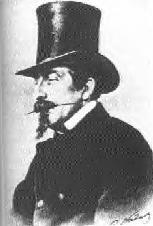Timothy Messer-Kruse’s The Yankee International: Marxism and the American Reform Tradition, 1848-1876 is an interesting book, documenting the history of the freewheeling American branch of the International Workingmen’s Association before the Marxists kicked the feminist, anarchists, and antiracists out. (Stephen Pearl Andrews, Victoria Woodhull, Ezra Heywood, William Greene, J. K. Ingalls, and by some reports Lysander Spooner were members.)
But this passage about the Paris Commune gave me pause:
“Sadly, the Commune was short-lived, and soon a vicious counterrevolution on the part of Napoleon III, aided by Prussian troops, had turned the tide.” (p. 100)
Um. The Commune lasted from March through May of 1871. Napoléon III had been taken prisoner (not a straightforward sense of “aided”) by Prussian troops at the Battle of Sedan in September of the previous year. Upon his release in March 1871 (consequent to the resolution of peace negotiations ending the Franco-Prussian War), he went into exile in England and spent the rest of his life there. Thus he had no role in the French government from September 1870 on. There was indeed a “vicious counterrevolution” in response to the Commune, and I’m sure that, had Napoléon III been in power, he would have happily led it. But he wasn’t and didn’t.
So now I worry, if the book is wrong about so basic a fact of history, what else is it wrong about?
